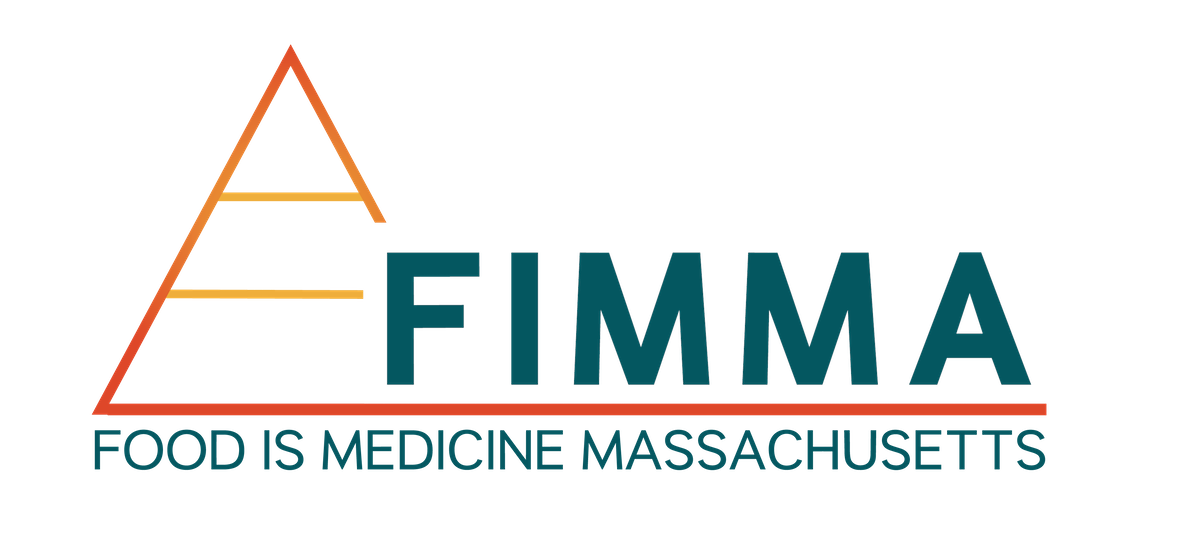Leah Costlow, Friedman School of Nutrition Science & Policy ‘21
At the quarterly spring meeting of Food is Medicine Massachusetts (FIMMA), held via video call on May 27th, leaders from member organizations provided insights into what COVID-19 has meant for their work. The COVID-19 pandemic continues to influence FIMMA member organizations and Food is Medicine (FIM) policies in complex ways. As the public health crisis and its ramifications develop, FIMMA member organizations have adapted their operations to respond to increased need for FIM services, spikes in food insecurity more broadly, and newly complex logistical challenges. Simultaneously, the roll-out of Flexible Services (FS) has continued more or less as planned, offering FIM organizations new opportunities to provide innovative services while accommodating public health measures.
Jean Terranova of Community Servings noted that the FS Prep Fund has allowed her organization to implement new technology forming a bridge between their referral platform and ACO referral platforms. Project Bread and Just Roots have employed a similar “data bridge” strategy using Prep Fund resources. MassHealth and FIMMA member organizations including Community Care Cooperative have adapted FS to fit new program needs—for example, adding grocery store gift cards and food vouchers to the array of services offered. These innovations are promising examples of the benefits FS can provide, particularly as the process will soon begin for submitting comments and recommendations to MassHealth concerning the next 1115 waiver. A graduate student working with FIMMA has started a project collecting feedback on community-based organizations’ experiences with ACOs; the data collected from this project will be a rich resource for these comments.
Despite the adaptability that FS can offer in some areas, FIM organizations are facing new logistical challenges posed by critical public health measures and the ripple effects propagating throughout the economy. Enforcing social distancing protocols during operations is a key challenge for many organizations, while others have struggled to replace their usual cohort of older and at-risk volunteers, who are advised to stay home. Adriene Worthington of the Greater Boston Food Bank observed that their need to purchase food has increased as donation patterns have shifted: “Since people have been grocery shopping, a lot of grocery partners don’t have food to donate.” Meanwhile, programs like Meals On Wheels have been working to find alternative, socially distanced ways of checking in on clients and creating client socialization opportunities in the absence of congregate dining.
As FIM organizations adapt services in these ways and in real time, FIMMA and its Task Forces are pushing ahead on key projects relating to the Massachusetts Food is Medicine State Plan Focus Areas, while celebrating promising developments for FIM legislative initiatives. At the federal level, Congressman Jim McGovern and co-sponsors introduced H.R. 6774, or the Medically Tailored Home-Delivered Meals Demonstration Pilot Act, which would evaluate the impacts of medically tailored meal interventions for seniors with chronic disease, with at least 20 participating hospitals in at least 10 states. If enacted, this pilot would result in even more expanded literature and evidence for the benefits of FIM interventions. Similarly, the 2020-2030 Strategic Plan for National Institutes of Health Nutrition Research was released on May 27th, outlining strategic goals that include Food is Medicine as a priority research area.
In the Massachusetts legislature, FIM pilot bills have had a favorable reception in the Senate and House. As the COVID-19 pandemic unfolds, legislative priorities may shift in unexpected ways that could detract from efforts to shine a spotlight on these pilot bills. At the same time, FIMMA members recognize a chance to amplify the importance of FIM interventions during the public health crisis and will be working with legislative sponsors to develop a strategy that highlights the connection between nutrition and individual COVID-19 outcomes.
These policy and legislative developments are exciting opportunities for FIMMA organizations to share compelling stories, lessons, and insights for the future, particularly at a moment in time that finds organizations reacting, adapting, and evolving to meet unprecedented demand for nutrition services. FIMMA is continuing to produce case studies in its Voices From The Field series and will be conducting interviews about Flexible Services during July. In addition, there are many other opportunities for FIMMA members to contribute knowledge and experience to the advocacy process. Contact us with questions or to let us know how you would like to participate!
